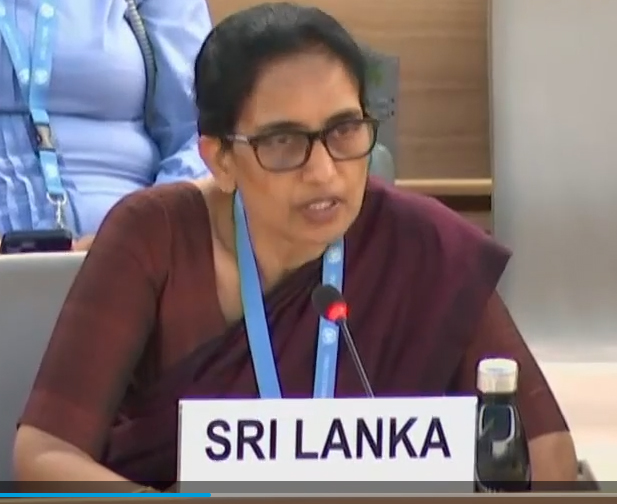
Mr. President,
This session of the Council is taking place amidst multiple global challenges, threats to multilateralism and international institutions, while hunger, conflict and climatic disasters are threatening the very survival of millions across the world. The need for international cooperation and dialogue have never been more essential, than at the present juncture. It is timely to reflect the founding principles of this Council and adopt an approach that addresses the pressing human rights challenges of today.
Sri Lanka remains an active partner in the multilateral framework, despite domestic challenges facing its people. The Government of President Anura Kumara Disanayaka has undertaken substantive efforts towards introducing a new political culture, addressing corruption and prioritizing economic revival, while reaffirming commitment towards meaningful reconciliation through domestic institutions.
A number of initiatives have been undertaken to strengthen the national anti-corruption framework, supported by a stronger, more independent Commission to Investigate Allegations of Bribery or Corruption, reflecting the Government’s firm intention to build a corruption-free society where fairness, integrity, and accountability shape every aspect of governance.
To enhance the independence and transparency of the criminal justice system and improve public trust, the Govt is seeking to expedite legal proceedings through the creation of an independent public prosecutor´s office. The Prevention of Terrorism Act is to be repealed following a review of the existing legislation.
The domestic independent mechanisms and processes working on missing persons, reparations and reconciliation, are continuing their work within the Constitutional framework. Increased engagement of the public with the work of these institutions showcase the growing public trust in their activities.
At a time when the UN human rights framework is facing challenges, Sri Lanka believes that the Council must prioritize thematic issues like food security, health, development and climate change that need to be addressed urgently for the benefit of humankind. Ensuring that the Council's actions lead to tangible improvements through a fair approach in human rights situations is essential.
Human Rights situations must be assessed with impartiality, non-selectivity and objectivity.
Mr. President,
Sri Lanka remains committed to engaging in a constructive spirit of dialogue and cooperation with the members of the United Nations including this Council within our national legal framework. In this context, we look forward to receiving the High Commissioner for Human Rights in Sri Lanka later this month. Thank you
